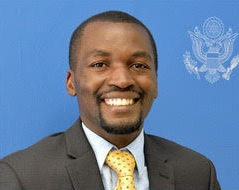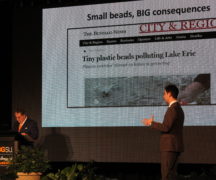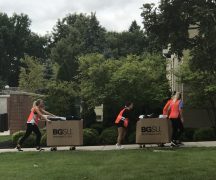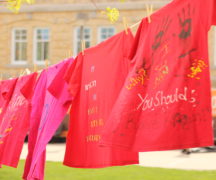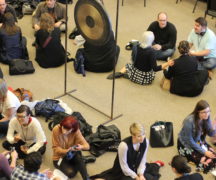By PATRICK MAKOKORO
Mandela Washington Fellow 2017
Bowling Green State University
The United Nations estimates that Africa is home to some 200 million people aged 15-24 years old and they predict that this figure will double by the year 2045. Participation by the youth in matters that affect them politically, socially and economically is vital because it has a direct bearing on how they live their lives. Africa’s young and emerging leadership is made of people who have a vision of the continent’s future that is expressed through focused passion and skills. Bowling Green State University (BGSU) is playing a role in this by hosting 25 Young African Leaders for a six week intensive leadership development institute. The Young African Leaders Institute (YALI) is jointly sponsored by the Mandela Washington Fellowship (https://yali.state.gov/washington-fellowship/) and BGSU. The YALI are from 19 African countries: Angola, Cameroon, Central African Republic, Chad, Democratic Republic of Congo, Ghana, Guinea, Kenya, Mauritania, Mauritius, Namibia, Nigeria, Sierra Leone, South Africa, Sudan, Tanzania, Uganda, Zambia, and Zimbabwe.
As one of the young leaders from Zimbabwe attending the 2017 Institute at BGSU, I am very excited to be amongst my colleagues from countries as far North as Mauritania and as far South as South Africa. The various YALI fellows at BGSU have such depth of knowledge on the immediate challenges of African development that when I see their passion and zeal when discussing their countries’ burning issues, I get really excited. My colleagues have inspired me to look at the world through different lenses particularly when addressing issues like poverty, corruption, hunger and disease. A colleague from Guinea-Conakry, Boubacar Diallo, is already thinking about how he can provide inclusive leadership that can stop his country’s corrosive factional disputes. He paints a compelling story of what needs to be done and is, in my view, ready to do what it takes to bring unity in his country when he returns back home.
Onyango Boaz Ojwang from Kenya is passionate about serving and not being served. He believes that servant leadership and its ability to transform a nation is what he wants to work on in his country one community at a time. You can almost read between the lines of what it would take to reposition his country and indeed the continent for global competitiveness. Many of the challenges that stand in the way of the emerging young leadership include a culture of impunity, violation of basic human rights, abuse of young girls and women as well as conflict. My colleague from Zimbabwe, Loice Kapondo sees hope in the young girls of Zimbabwe and Africa. She intends to ensure that they stay in school for a while longer in order to promote their overall life chances as well as the welfare of their diverse African communities.
As we get into the third week of the Institute, I have also come to reinforce my thoughts on what it takes for the continent to move forward. Education is a pillar that can assist the young leaders to enhance their role in the development of their nations and the continent. Youth leadership and participation in Africa’s transformation and development process must be made a priority so as to create a secure, peaceful, and prosperous continent.
We are grateful to Bowling Green State Univesity, President Mary Ellen Mazey, the Leadership of our Institute, Drs V Jane Rosser, Chris Frey and Kefa Otiso, for the wonderful opportunity to interact as colleagues as well as learn from one another. The Bowling Green community has welcomed us very well and we are looking forward to the next couple of weeks here! We hope to reciprocate their kindness in the future. Go Falcons!

